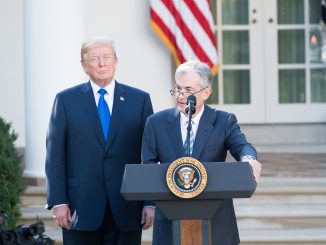The Cleveland Fed has a paper that shows the likely path of the fed funds rate in response to the 2008 macroeconomic “shock” had there been no zero lower bound:

I have a couple observations. Note that the appropriate rate is viewed as being roughly zero percent when monetary stimulus was desperately needed to prevent the Great NGDP crash in late 2008, and roughly minus 5% in late 2009 when it was much too late to prevent the crash. That’s a perfect illustration of the folly of backward–looking monetary policies. And it shows why we need to “target the forecast,” preferably market forecasts.
More importantly, this exercise ignores the fact the the “shock” was not exogenous, rather it was a market recognition that the Fed was deviating from its multi-decade policy of keeping NGDP growing at about 5%. The markets began to realize in late 2008 that the Fed had no “plan B,” despite all the academic writings by Bernanke. There was no plan to prop up NGDP through unconventional policies, and no plan to engage in level targeting. The Fed was going to let NGDP crash, and not make up the ground later.
If the Fed had been able to cut rates below zero, markets would have had confidence that any economic weakness would be temporary, and that we’d quickly return to a healthy level of NGDP, as in Australia. This would have supported asset prices, and prevented the big “shock” to NGDP from occurring in the first place. The irony is that if the Fed had been able to push the fed funds rate negative, it might not have had to do so, or perhaps it might have only required a negative 1% or 2% target.
This example perfectly illustrates why interest rate targeting must be ended. The problem that occurred in this recession will almost certainly occur again in the next one. The Fed wasn’t ready in 2008, will they be ready in 2018? So far there are only a few hints that they may be considering some other type of targeting regime. It’s time for the policy model builders inside the Fed to get busy.
- Bulenox: Get 45% to 91% OFF ... Use Discount Code: UNO
- Risk Our Money Not Yours | Get 50% to 90% OFF ... Use Discount Code: MMBVBKSM
Disclaimer: This page contains affiliate links. If you choose to make a purchase after clicking a link, we may receive a commission at no additional cost to you. Thank you for your support!




Leave a Reply